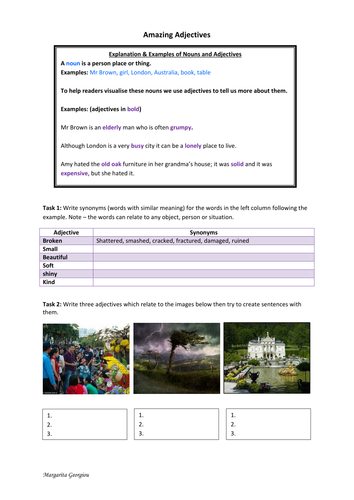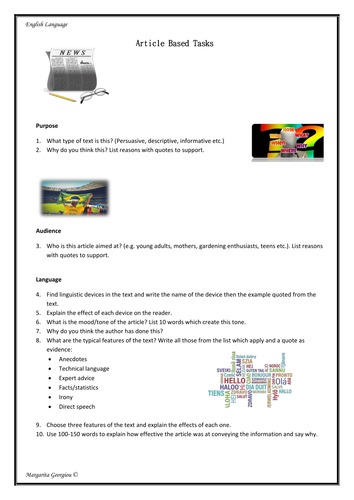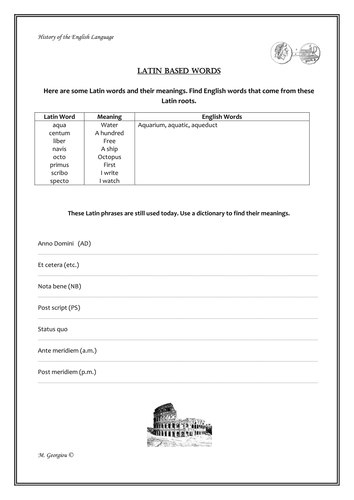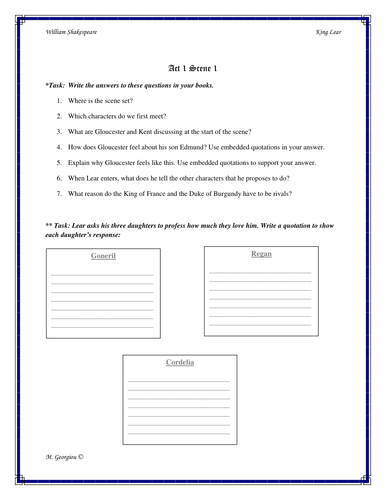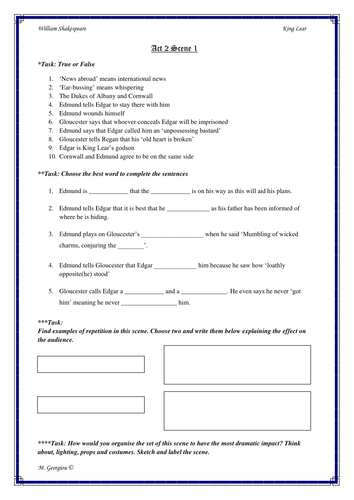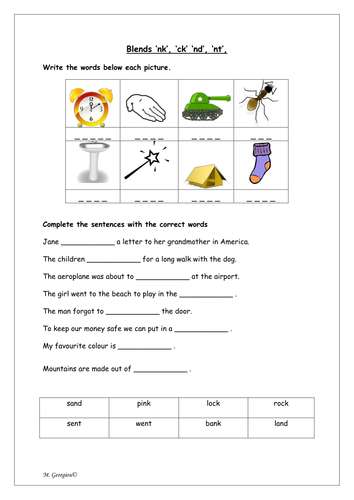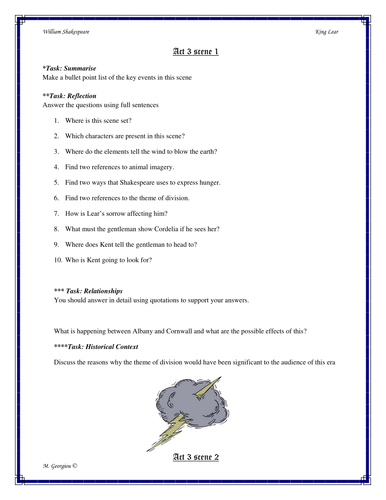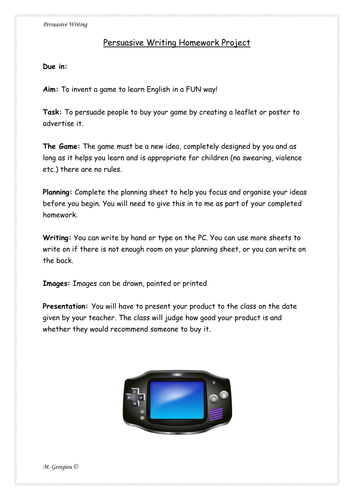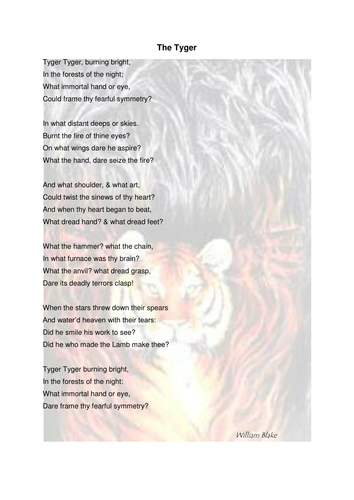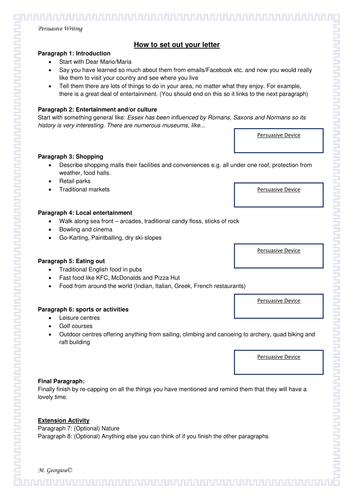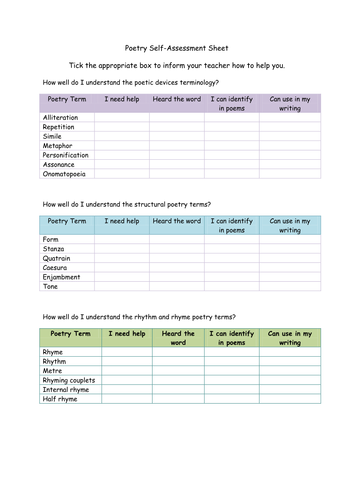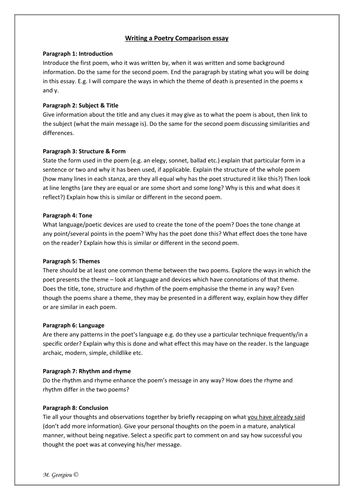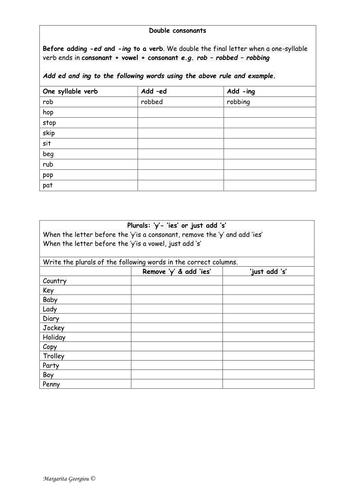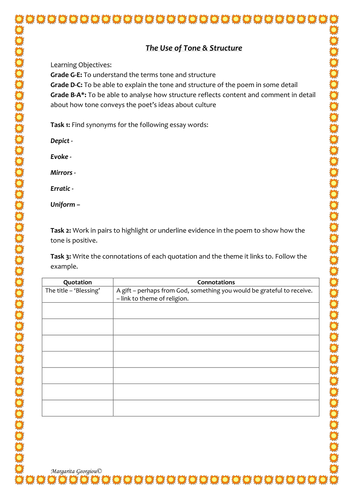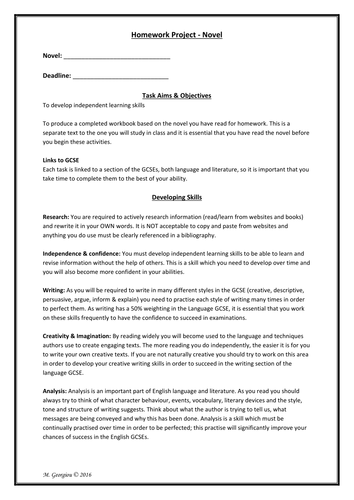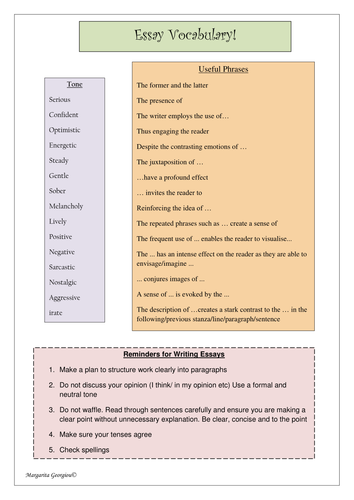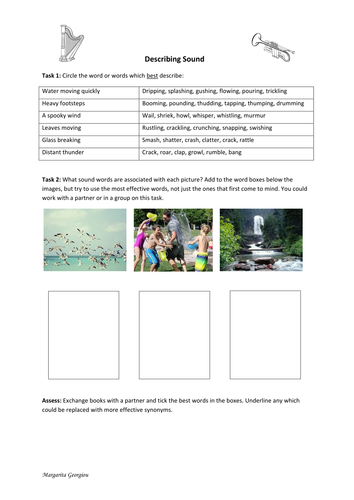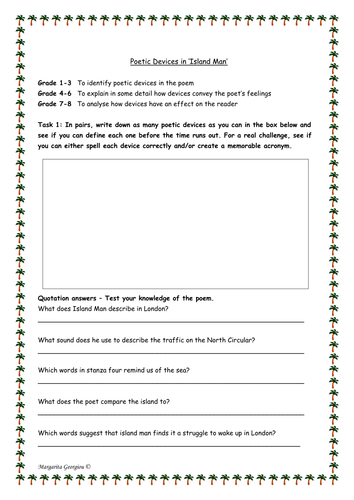145Uploads
100k+Views
11k+Downloads
All resources

Developing the use of Adjectives, verbs and adverbs
Eight worksheets to revise adjectives, verbs and adverbs and encourage students to use a wider, more ambitious range of vocabulary correctly.
Worksheets include an explanation of each term with examples, differentiation by task and extension tasks.
All work includes an assessment method (peer, self, class etc) for super simple in class marking.
Differentiated objectives are included for each grammatical term and students tick the objective level they feel they have achieved at the end of the lesson.

Analysis of articles. Purpose, audience, language, layout. GCSE exam preparation.
A wide range of tasks for students to complete after reading any non-fiction article. Great for preparing students for the GCSE English language paper. Alternatively, this would work well as a cover lesson or even a homework project.
Can be laminated and reused.

Words borrowed from other Languages/ The Origins of English
A series of worksheets to help students to understand the complexities of the English Language. Activities on prefixes/suffixes and their meanings, as well as subject specific words.
Ideal activities for more able students to challenge and extend.
Can easily be used as homework to support topics: the History of the English Language, grammar: prefixes and suffixes.

Shakespeare's King Lear Act 1 Workbook/Activity Pack
A ready to print workbook, which is differentiated by tasks of increasing complexity. This is handy to use as students study the play in class. Alternatively, it is an easy resource to use for homework or as a revision booklet.

Shakespeare's King Lear Act 2 Workbook/Activity Pack
A ready to print workbook, which is differentiated by tasks of increasing complexity. This is handy to use as students study the play in class. Alternatively, it is an easy resource to use for homework or as a revision booklet.

End blends nk, nt, ck, nd
A differentiated resource for children to learn, practise and revise end blends. The activities are varied and engaging and there is plenty to keep more able students challenged and on task.

Shakespeare's King Lear Act 3 Workbook/Activity Pack
A ready to print workbook, which is differentiated by tasks of increasing complexity. This is handy to use as students study the play in class. Alternatively, it is an easy resource to use for homework or as a revision booklet.

Fun persuasive homework project - design and sell a computer game
A great way to reinforce a persuasive writing unit. This project is creative and allows students to enjoy doing their homework, whilst learning valuable skills. The project includes a detailed outline of the task, what they can and can't do and how it will be assessed (class assessed through S&L presenting to the class - also useful for a S&L grade).

William Blake 'The Tiger/Tyger' poem, tasks and answers
A comprehensive set of tasks for students to understand and analyse the poem. All tasks are differentiated using stars (*-All, **- Most, ***-Some) and extension tasks are provided for more able students/early finishers. Alternatively, they could be set for homework.
A handy copy of the poem is provided, as well as answers to the questions, which could be displayed for self/peer assessment.

An introduction to poetry - poetic devices
Several complete lessons for learning about poetic devices complete with worksheets (separated into lessons with clear task instructions). Activities are varied to engage students and differentiated to learning style or ability.
A PowerPoint presentation is provided to display key lesson information. Definitions of devices are given, differentiated learning objectives are provided and activities are outlined as a visual reminder of the lesson structure.

Persuasive Writing Task - Persuade a friend to visit your area GCSE English Exam Preparation
This task is highly differentiated as students are provided with a planning sheet, which reminds them to use persuasive devices and outlines ideas for each paragraph. There is a sample introductory paragraph, reminders, word-bank and sentence starters for less able students, as well as extension tasks for the more able.
There is a matching task for a lesson starter with an 'add your own example' column and extension for more able or early finishers. Teacher answers are also included and can be displayed. The answers are colour-coded for students to self-mark.
A PowerPoint presentation outlines all tasks and includes a peer assessment task for the end and also includes differentiated objectives.

Poetry self-assessment. Assess knowledge of poetic terminology
This is a handy resource to assess existing knowledge at the start of a unit. The assessment grids are divided into three sections: poetic devices, structural terms and rhythm/rhyme terms. These can therefore be given individually depending on what is being taught, or all at once.

Essay plan - poetry comparison
A detailed guide for students to work through the poetry comparison essay. Structured into paragraphs with a clear description of what should be included.

Les Grand Seigneurs poem, activities and answer sheet. Suitable for cover or homework.
Consists of the poem and four worksheets including: a summary of the poem in simple language, a glossary, a picture/quotation matching task (starter),differentiated questions, an essay question with a planning structure and PEEL grid.
Differentiated objectives are included on the worksheet and answers to questions are provided separately.
So easy to follow/use, it can be set for cover or homework.

SPaG practise. Spelling Lists and tasks. Great for homework or starters.
Includes spelling lists to be practised Monday-Friday with mini tasks. Lists include: commonly misspelled words, ‘oi’ and ‘oy’, ‘Ough’, Adding ‘ly’, ‘dge’, Silent letters ‘w’ and ‘t’, Silent letters ‘k’ and ‘b’, ‘er’ ‘ur’ and ‘ir’, letter ‘g’ has a soft sound, ‘ea’ that sounds like ‘e’ as in egg. ‘y’- ‘ies’ and doubling consonants.

Tone & Structure in the poem 'Blessing'
Good for practising the unseen or general poetry analysis in preparation for the GCSE and IGCSE
Various tasks to help students understand the impact of tone, structure and connotations in the poem. Differentiated objectives and extension task are included.
Answer sheet provided for students to self-mark.

Homework Project
A project based on the reading of a novel over an extended period of time; ideal for holiday homework.
Specific links are outlined for GCSEs, but the project can also be used for KS2 and 3. This is excellent preparation for year 9 over the summer as a transition from KS3 to KS4 and/or to develop the reading and language skills of year 10 groups.
The project includes a range of tasks which support the skills needed to succeed in English Language and Literature GCSEs/IGCSEs. The tasks are categorised into the following sections: research, writing, analytical and creative, to appeal to different learners and cover a range of skills.
There are specific guidelines included for presentation and emphasis is placed on the development of independent learning i.e. students must learn to manage their work and time effectively in order to meet the teacher's deadline.

Essay vocabulary helpsheet/bookmark
A range of vocabulary to help students express their ideas in a more sophisticated way. Words have been organised into themes commonly explored in literature. There are also general essay words e.g. other words for 'shows' and helpful phrases.
The resource can be copied and glued into student books for easy reference. Alternatively they can be cut out, glued back to back and laminated to make a selection of bookmark shaped classroom tools.

Descriptive writing, the five senses, vocabulary to describe.
A good start to creative/descriptive writing topics as it encourages students to consider the senses and develop the quality of their descriptions.
Includes differentiated tasks, objectives and easy to use, fast assessment methods.

Poem 'Island Man' and tasks/activities for unseen poetry practise GCSE/IGCSE preparation
Good for practising the unseen or general poetry analysis in preparation for the GCSE and IGCSE
Tasks focus on quotation analysis to help students understand the impact of specific poetic devices. Differentiated objectives and extension task are included.

